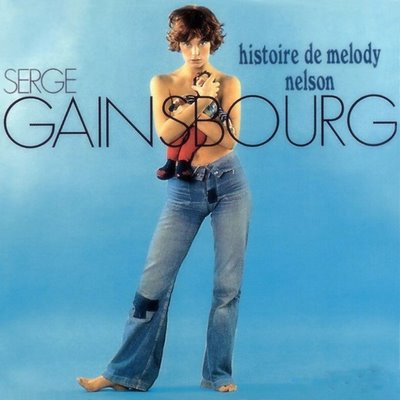As the writer of ‘Je T’Aime (Mon Non Plus)’, the unlikely 1969 UK No.1 that got even us prurient Anglo-Saxons drawing the curtains in the afternoon, Gainsbourg is often mentioned in the same breath as Gallic romantic singers Sacha Distel and Charles Asnavour. This is an unfortunate association and a millstone in some ways, yet the success of that track opened the record company’s coffers, enabling him and orchestral arranger Jean Claude Vannier to lavish money on 1971’s Histoire de Melody Nelson. With the aid of London session musicians like Herbie Flowers and Dougie Wright as well as a 30-piece orchestra and a 70-strong choir back in Paris (not to mention Jane Birkin), they created a record of rare dynamism and of such unfettered exploration that it inspires a rare devotion in its fans to this day.
It is still in many ways a cult concern, especially outside of France, a word-of-mouth nonpareil that has its evangelists, with an underground of fans who resent the cheesy chanson tag. It’s been sampled by Massive Attack, Ice T and David Holmes, while Pulp, Beck and Air would have sounded very different without it. Like no other record before, and some would say since, it consolidated funk, pop, classical and the avant-garde in the most sophisticated, seamless way, some feat considering Gainsbourg and Vannier weren’t sure what was going to happen at the outset.
The actual germ of an idea came when Gainsbourg read Lolita. "It is Humbert Humbert who fascinates me," he smirks on grainy footage of an interview from a documentary included on DVD with this reissue. His never-ending Gitane billowing in black and white, he adds "Lolita is just a silly little girl."
He had even thought of turning Lolita into a musical with his own songs, an idea that seems contemporary even today. It’s not difficult to see why Lolita, which Serge calls ‘a very pure book’, appealed to him. The main character is conniving, darkly humorous, complex and attractive (despite his predilections), and the novel itself kicked up an almighty shit-storm when it was published. How could he not approve?
If the documentary sheds new colour on the record, then the bonus track ‘Melody lit Babar’ included with this reissue, throws up all sorts of alternative possibilities of what might have been. It feels like an appendage, an oddity, out of kilter with the rest of the record; a dirty uncle the family don’t like to talk about. It’s strange to think what an additional minute and two seconds might have done to a concept album that is already subversive and pushing the boundaries of decency. If listeners were ready to accept Jane Birkin as underage innocent, then this homage apparently to a toy belonging to Charlotte Gainsbourg, would have been too murky and tasteless in the context of the record. Musically it is a square peg; lyrically it might have awakened the worst in people and a work of genius would have been embroiled in farce. Herbie Flower’s intrepid bass and a bright and bizarre flugelhorn at the outset combine to make it an arresting nursery rhyme and there’s nothing wrong with the track in isolation, but as part of Melody Nelson it falls short; the weakest link on a record with few detectable flaws.
Nevertheless, the Gainsbourg devotee would be well advised to fork out for the other extras here. For everyone else, Histoire de Melody Nelson on its own is more than enough, because no amount of extras can much improve on perfection.


